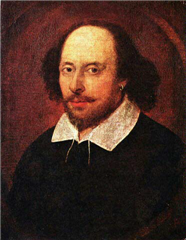To be, or not to be, that is the debate map
A light-hearted debate map of Hamlet’s existential dilemma in Act III Scene I, to commemorate the 444th anniversary of William Shakespeare’s birth on 23 April 1564.

Without further ado, here’s the soliloquy—the medium in which sensitive young men worked out their feelings pre-YouTube:
“To be, or not to be, that is the question;
Whether ’tis nobler in the mind to suffer
The Slings and Arrows of outrageous Fortune
Or to take arms against a sea of troubles,
And by opposing, end them. To die, to sleep;
No more; and by a sleep to say we end
The heart-ache and the thousand natural shocks
That flesh is heir to — ’tis a consummation
Devoutly to be wish’d. To die, to sleep;
To sleep, perchance to dream. Ay, there’s the rub,
For in that sleep of death what dreams may come,
When we have shuffled off this mortal coil,
Must give us pause. There’s the respect
That makes calamity of so long life,
For who would bear the whips and scorns of time,
Th’oppressor’s wrong, the proud man’s contumely,
The pangs of dispriz’d love, the law’s delay,
The insolence of office, and the spurns
That patient merit of th’unworthy takes,
When he himself might his quietus make
With a bare bodkin? who would fardels bear,
To grunt and sweat under a weary life,
But that the dread of something after death,
The undiscovered country from whose bourn
No traveller returns, puzzles the will,
And makes us rather bear those ills we have
Than fly to others that we know not of?”
…and here’s the map of Hamlet’s internal struggle (complete with the embed code for his MySpace blog):
So, how do you rate Hamlet’s arguments—does the proud man’s contumely really sting more than the pangs of dispriz’d love? Either way, I guess Valleywag has the story covered—and, at the risk of a skewed sample, what do you make of Hamlet’s conclusion?
“Thus conscience does make cowards of us all,
And thus the native hue of resolution
Is sicklied o’er with the pale cast of thought,
And enterprises of great pitch and moment
With this regard their currents turn away,
And lose the name of action.”
Comments
Leave a Reply

